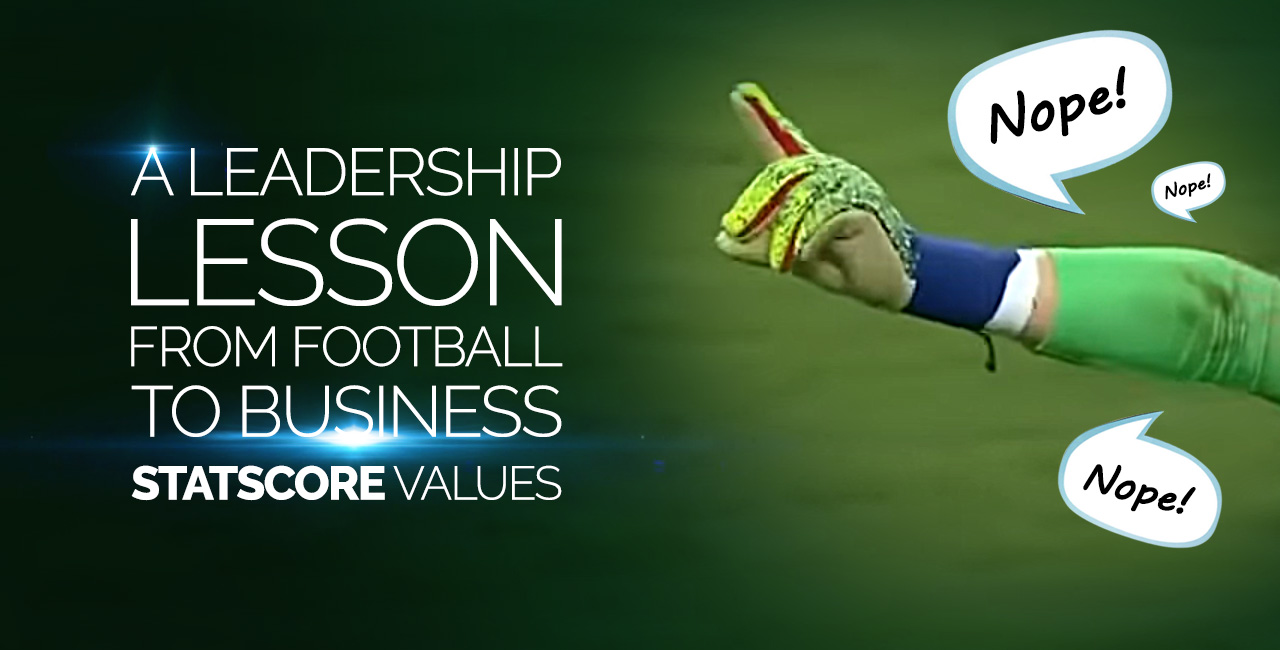So it happened for real. Seriously – a goalkeeper rejected the request to leave the football pitch when his head coach wanted to make a substitution! Place: London, Wembley. Occasion: Carabao League Cup Final. Date: 24/02/2019. Teams: Manchester City and Chelsea. Two main actors: Kepa, The Blues goalie and Maurizio Sarri, Chelsea’s gaffer. What does this unusual story tell us about football, leadership and business? A lot!
HOW DID IT START
First, you all deserve some background. It was the 120th minute of the match, the last minute of extra time and the result was still 0:0. Kepa had requested medical help a couple of minutes before this and then he kept on massaging the same muscle, Sarri made the decision that no further delay was needed (or possible!). He decided to bring on the experienced Wilfredo Cabarello to replace the young Spaniard.
To everyone’s surprise, the goalie refused to leave the pitch and kept on nervously informing the head coach that he wanted to play on. Everyone was shocked as according to the football rules of the game there is literally nothing you can do when a player refuses to leave the pitch. You wouldn’t have the security guards escorting him from the ground, would you? Sarri was furious, but there was not much he could do at that point.
Experience more: see how great we visualized the match in LivematchPro!
HOW DID IT END
In the end, the substitution did not take place and Kepa remained on the pitch for the penalty shoot-out. He managed to save one shot but it did not help Chelsea to win the match. Manchester City managed to win the League Cup for the second season in a row. However, after the game had ended all the eye and cameras were on Kepa. You know why…
OK, so we know the story and we have all the obvious details. It is so easy to blame Kepa for his lack of respect and question Sarri’s managerial skills. First, Kepa turned out to be defiant and Sarri ended up as someone without full control. I do not like easy answers, so I will complicate the outcome a little bit for you and actually show you that we had two parallel situations.
Read more: this was not the only big clash on Sunday 24th February for UK!
SITUATION 1
It takes place in Kepa’s mind. He suffers from the injury but he does not want to let down the faith of the coaching staff, colleagues and fans. This is why he made the risky decision to stay on the pitch and refused to leave. He seemed to believe that it’s the best action to take. In his head, he might feel as if he is a kind of a heroic icon here.
SITUATION 2
Well, it takes place outside of Kepa’s mind. Rather closer to the Chelsea bench, where the coaching staff has decided that bringing in the fresh and experienced Caballero (who has proved track record as a successful goalie, when it comes to penalty shoot-out) to replace a player, who seems to be suffering from an injury might be not a bad move before extra time ends. So tactically it seems to be a wise decision. Then the circus kicks in.
WHAT HAVE WE ALL LEARNT
We all saw how the two parallel situations did not match and how embarrassing it turned out to be for everyone involved and for almost everyone witnessing the incident. We all learned something here but probably not the same thing. Let me gather the main lessons from the 120th minute that we will remember forever.
How to avoid such an awful incident developing when leading any project (not only a football team):
- Always communicate to your team members what are your expectations from them are and what the margins are for their individual commitment – at some stage, the dedication may cross the line that separates helping a project and start affecting it in a bad way.
- Name goals and values – and get everyone familiar with them – only then can you demand these rules are followed.
- Set clear rules – the more procedures you put in place, the easier it is to answer the real challenges a team faces.
- Remind the team who’s the leader – democratic leadership pays back only when you have a grown up and mature team, where the experience of members, their understanding of common goals and procedures run so deep that there is no need to authorize every decision.
- Do not make exceptions – one exception from the rules granted and the whole structure gets weaker.
- Be emphatic – I know that could be quite controversial after what I have said above, however, I still believe that blaming the one who made a brave but wrong decision, will not make them a better person or player. What might help them in their further development is to explain why the decision and lack of obedience were wrong.
We are waiting for your feedback and suggestions – drop us an email – we will answer as soon as possible.




